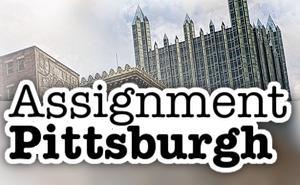The Allegheny County Sanitary Authority (ALCOSAN) has released a draft Wet Weather Plan as part of a consent decree with the federal Environmental Protection Agency. ALCOSAN isn’t happy with the plan, neither are local environmental groups, but for different reasons.
The 2008 consent decree requires ALCOSAN to stop sewage overflows into waterways during wet weather. The basis of the problem is, in many large urban areas, including Pittsburgh, the sanitary sewer systems were planned, designed, and constructed 50 to 100 years ago.
“And what is happening today is those antiquated systems that were designed with a population and industrial base in mind, they are now being asked to handle the storm water and the sanitary water from the 21st century,” said Attorney Chip Babst, solicitor for ALCOSAN.
To address the issues, the EPA initiated action against municipalities and authorities, requiring them to make changes. Babst said ALCOSAN, the Pennsylvania Department of Environmental Protection, and the Allegheny County Health Department all signed the consent decree, which stated that any plan had to meet certain requirements.
“It had to eliminate all sanitary sewer overflows, it had to control combined sewer overflows — these are sewers that contain not just sanitary waste but also storm water — and control those combined sewer overflows to the extent they would not prevent attainment of state water quality standards,” he said.
The plan also looks ahead to 2046, to ensure there will be enough capacity for growth.
Competing Plans
There are a couple of plans at play to address the problem of sewage overflow. First, there is the so-called Selected Plan, which meets all federal requirements. It would cost $3.6 billion.
“We do not believe it is a responsible plan with respect to what our rate payers can afford. ALCOSAN is supported solely by user rates. We do not receive tax dollars. We are not supported by the tax base, solely on user rates,” said ALCOSAN Executive Director Arletta Scott Williams.
So, ALCOSAN is hoping to renegotiate the consent decree. They’re supporting the so-called Recommended Plan, which would scale back some of the infrastructure upgrades, and would cost $2 billion. Williams said under that plan customers would see their rates double, at a minimum.
“A tunnel is proposed in the Selected Plan, so the Recommended Plan starts that process. It starts at the plant, goes up the Ohio to the Point, goes up the Allegheny and up the Monongahela River, but it is not the entire tunnel extent included in the Selected Plan, it’s starting that process,” said Coleen Hughes, one of the authors of the plan. Right now, the system is designed to handle about 250 million gallons per day, primary and secondary capacity.
“With the Recommended Plan, the primary treatment capacity will be increased to 480 million gallons per day, and the secondary capacity to 295 million gallons per day,” she said.
Public Comment Sought
Still, while ALCOSAN and others attempt to renegotiate the consent decree, public comment will be taken on the Selected Plan. Though it’s only just been released to the public, there is already outcry against it. Rabbi Ron Symons is a partner with the Clean Rivers Campaign. He said the plan is too expensive and doesn’t include any green infrastructure. “I believe that we need to have green options that will help us to better appreciate the world in which we live, to better protect it,” Rabbi Symons said.
The group would like to see more rain gardens, permeable concrete and other green solutions to managing stormwater runoff, but Chip Babst said that’s not ALCOSAN’s place. “Green infrastructure projects are designed to limit flow before they enter the system,” Babst said. “ALCOSAN’s only authority is to manage flows once they reach their interceptor system.”
One thing everyone agrees on is something has to be done to stop the overflow of sewage into rivers during rainy weather.
“Half the days when the river is open in the summer, it’s shut down because it’s not acceptable for health purposes. This is not the Pittsburgh I want to live in,” said Rabbi Symons.
Public comment is now being taken on the Selected Plan, while ALCOSAN continues to try to renegotiate the consent decree and use its Recommended Plan, which could take months. A series of public hearings begin August 16, and comment will be taken until October 19th. A final plan is due by the end of January 2013.






